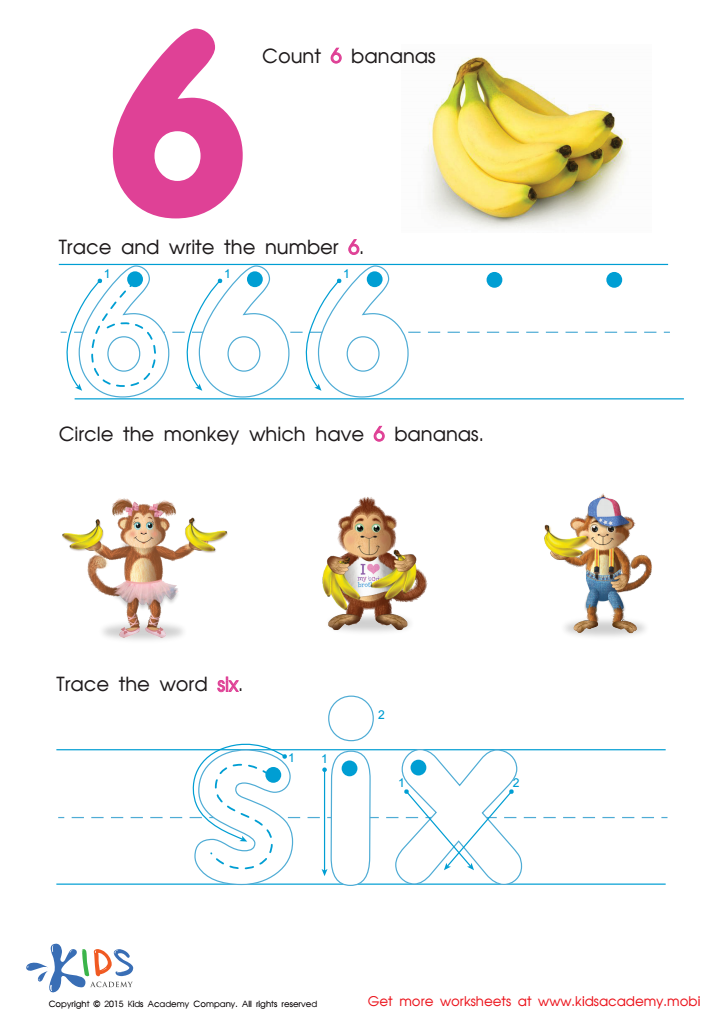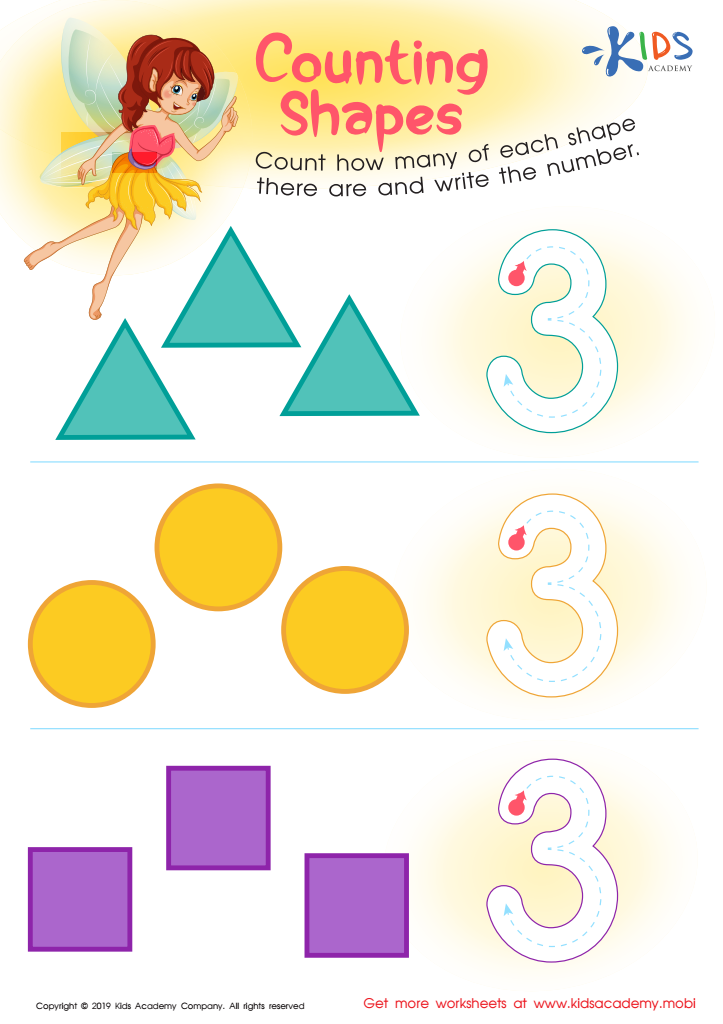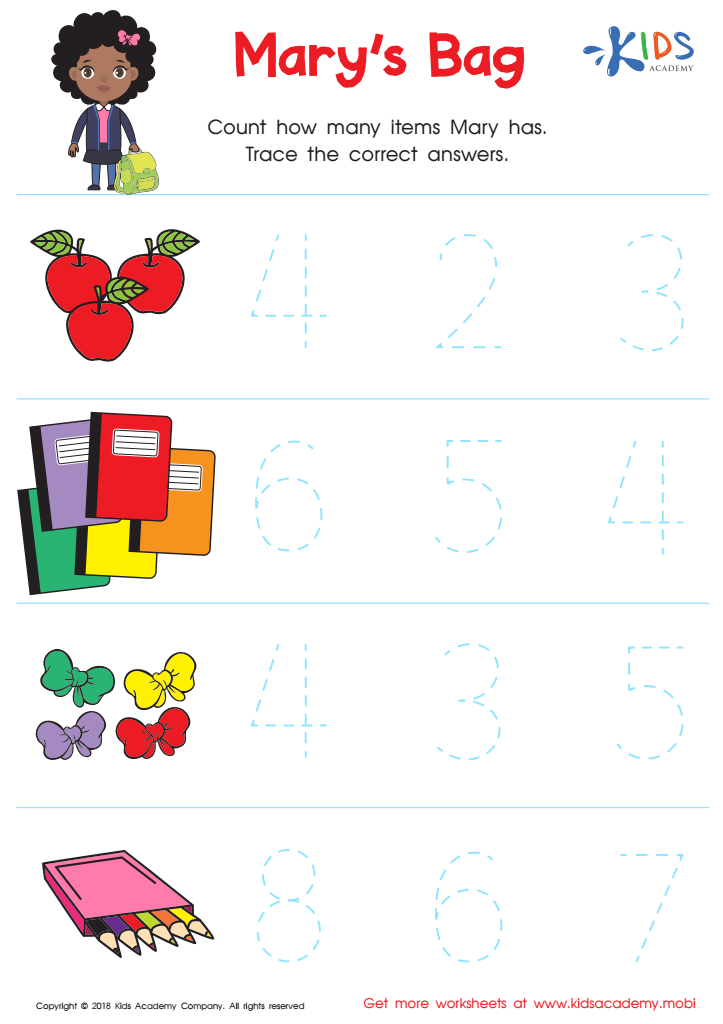Counting practice Tracing Numbers Worksheets for Ages 3-7
3 filtered results
-
From - To
Introduce your child to the exciting world of numbers with our Counting Practice Tracing Numbers Worksheets, perfect for ages 3-7. Our engaging and fun worksheets help young learners develop their counting and number recognition skills while improving fine motor skills through tracing. Designed by educational experts, each worksheet offers a range of activities that align with early learning standards, ensuring your child builds a strong mathematical foundation. Suitable for both classroom and home use, these printable exercises are an excellent addition to their learning journey. Make counting and number tracing a delightful experience!


Tracing And Writing Number 6 Worksheet


Counting Shapes Worksheet


Kindergarten Number Tracing: Mary's Bag Worksheet
Counting practice and tracing numbers for children aged 3-7 are foundational activities essential for early childhood development. During these formative years, young minds are exceptionally receptive to new concepts, and introducing structured numerical exercises can greatly influence their future educational trajectory.
Counting practice improves number recognition, allowing children to understand and differentiate between quantities. This comprehension is the bedrock of more complex mathematical operations they will encounter later on. Additionally, the act of counting objects reinforces one-to-one correspondence, a vital skill ensuring that children grasp that each item is counted once and only once.
Tracing numbers, on the other hand, develops fine motor skills and coordination. As children trace numbers, they gain control over their hand movements, necessary for writing skills in general. This activity not only helps in improving handwriting but also imprints the shape and structure of numbers in the child's memory through repetitive actions.
Moreover, integrating counting and tracing activities into daily routines cultivates a sense of discipline and concentration, important attributes for academic success. These tasks are interactive and fun, often featuring colorful and engaging materials, which capture children's attention and make learning an enjoyable experience. For parents and teachers, investing time in these foundational practices yields significant long-term benefits, equipping children with the skills needed for academic proficiency and fostering a positive attitude toward learning.
 Assign to My Students
Assign to My Students





















